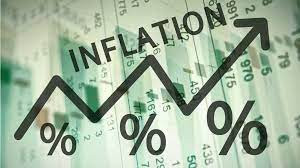
A BRIGHTER future requires developing countries to adopt a radical shift in thinking. There is only one week left before 2023 ends and 2024 is unveiled.
Although 2023 was a difficult year overall, most people did not notice because the world was still emerging and recovering from the shocks brought by the COVID-19 pandemic.
The year 2023 started with so much hope and enthusiasm because the COVID-19 pandemic was behind us, and the world had begun to navigate the global economic challenges arising from the Ukraine war.
But in terms of the global economy, it was not a stable year. Numerous significant issues contributed to the instability of the world economy, such as the disruption of the global supply chain, high inflation, and the shock brought on by the Middle East conflict, all of which forced most central banks to raise interest rates to extremely high levels. In addition, China, the engine of the world economy, saw slower-than-expected growth, which had an impact on other major economies.
Maintaining the stability of economies until the end of the year was one of the main challenges facing finance ministries and central banks.
Some have been successful in doing so, as evidenced by declining inflation rates in several countries and expectations are high that interest rates will do the same. Although this is a relief in many ways, the threat of global economic stagnation still exists, so the world is not yet out of the economic woods.
The economic growth forecast for 2024 remains marginal with a projected annual growth rate of 2,7% down from 2,9% in 2023.
Although global economic analysts are reluctant to identify one of the causes of the growth slowdown, the two major wars in Europe and the Middle East have a significant impact because these regions are major suppliers of vital global supplies, most notably energy.
- Young entrepreneur dreams big
- Chibuku NeShamwari holds onto ethos of culture
- LSU students win innovation prize
- Mhofela finally drops album
Keep Reading
Given the devastation that climate change is causing to nations, they must come together to find a way forward, and move past fighting each other. There was a sense, at some point this year, that the world was starting to turn away from the irrational political attitude of the West, mainly how they handled two wars and how that has driven the world into an almost catastrophic economic crisis.
These hopes, which are still there, were sparked by the talks about the multipolar system.
Whatever the situation, significant geopolitical and economic change will be needed starting in 2024 and going forward, mainly for developing countries. This is simply because it is no longer business as usual. The world is burning and drowning — it does not need guns. Economies are on a gradual tumble.
The current system is no longer able to meet human needs, and poverty and destitution are growing. As a result, there is a pressing need to fundamentally change the way we think about and structure the world.
For example, in one of my previous instalments, I mentioned that most of our borders straddle major rivers or vice versa whose fresh water we do not utilise because of border issues.
Instead of our people crossing the borders to neighbouring countries for menial jobs, they could be rushing to the Zambezi River to explore the economic opportunities there. For that to happen, there is a need for facilities that link with markets such as roads, rail and airports as well as a bit of marketing.
There is also a need to channel energy towards some of the fastest-growing sectors mainly targeting youth. Since the era of the COVID-19 pandemic, the technology industry has continued to grow thus reducing the need for unnecessary movement and transport.
The working-from-home modality is fast proving to be the future of office work and is cutting unnecessary overhead costs for both employers and employees. There is a huge opportunity to ensure an effective system is put in place to sustain an efficient online office environment — but so far it has proven to be doable.
Linked to that is the massive growth in the use of renewable energy. With a rising push on environmental consciousness and the inability of national energy suppliers to meet the growing needs, renewable energy is rapidly gaining momentum.
Solar and wind energy industries are experiencing significant growth, contributing to a greener and more sustainable world. This could be one area where governments can reduce import taxes and allow their people to be more self-sufficient in energy production.
All these developments point to one thing — a world that is decentralising services and heading towards partial economic dependence.
With solar and wind energy, all a government needs to do is establish manufacturing industries of the equipment and a backup sector to power the energy of the country.
Once that is done, there will be a limited need for everyone to come to town to be productive or seek employment which means less pressure on the already overwhelmed services.







